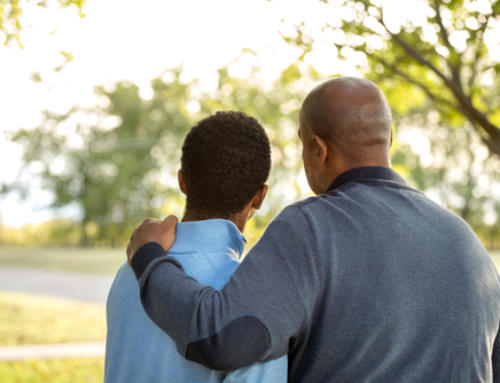Relationship boundaries are the foundation of healthy relationships. Growing up in a family with addictive behaviors, a person can live in a family and struggle with boundaries. The good news is that relational boundaries can be shifted and adjusted with a bit of work.
Purposes of Boundaries
People hold boundaries in their lives because they serve an important purpose. They can:
- Help support roles and responsibilities. The line that separates people from each other is called a relational boundary. This includes thoughts, feelings, intentions, experiences, and anything else that another person holds close to them. That belongs to the individual person. When there are clear and defined boundary lines between family members, each one takes full responsibility for making the family healthy. Roles are not reversed or mixed up, such as what happens in dysfunctional families or when a loved one has addiction.
- Be a great screening tool. They help delineate whether a relationship is safe or unsafe, positive or negative. Relationship boundaries strengthen one another, but disrespect, harsh criticism and lack of boundaries can be harmful and destructive.
- Support communication. Every person in a family must have equal opportunity to speak and be heard. Everyone has value, even amidst disagreements. When a member dominates or withdraws, it throws the balance of healthy family communication off.
Clearing Blurred Lines
When blurry boundaries take hold of a family, it is a good idea to go back to the drawing board and figure out how to get back on track. An easy way start this process is to:
- Commit to truth. Telling the truth can be hard in families where substance abuse is present. Distortion, denial, regret, and pain are part of the process of healing those traumatic spaces where things got blurred in the first place. Acknowledgement of unhealthy patterns will help bring light to shadows and begin the healing process.
- Encourage family. In families with poor boundaries, emotional expression tends toward one of two extremes: either it is absent or it is chaotic. There is nothing in the middle. It is healthy or unhealthy. Healthy families respond with empathy and concern. Mutually sharing feelings is what builds stronger families.
- Resolve conflict. Conflict is a normal part of family life but when conflict is not resolved, it creates negative feelings and breeds distance. Committing to resolution of conflict can help everyone take responsibility.
With help and support, families can learn to communicate better and build healthy boundaries. Healthy families can support a healthier process of healing and recovery for loved ones with substance abuse and alcoholism disorder.
The Springboard Center’s addiction treatment programs are tailored to meet the needs of each client. We help create a toolkit that you can take with you when you leave so you feel equipped to reimagine your life in recovery and rebuild it one step at a time. By utilizing a set of diverse methods of addiction treatment, we are able to deal with your addiction from all angles and concentrate on every aspect of your healing process. Call us for more information: 432-620-0255




